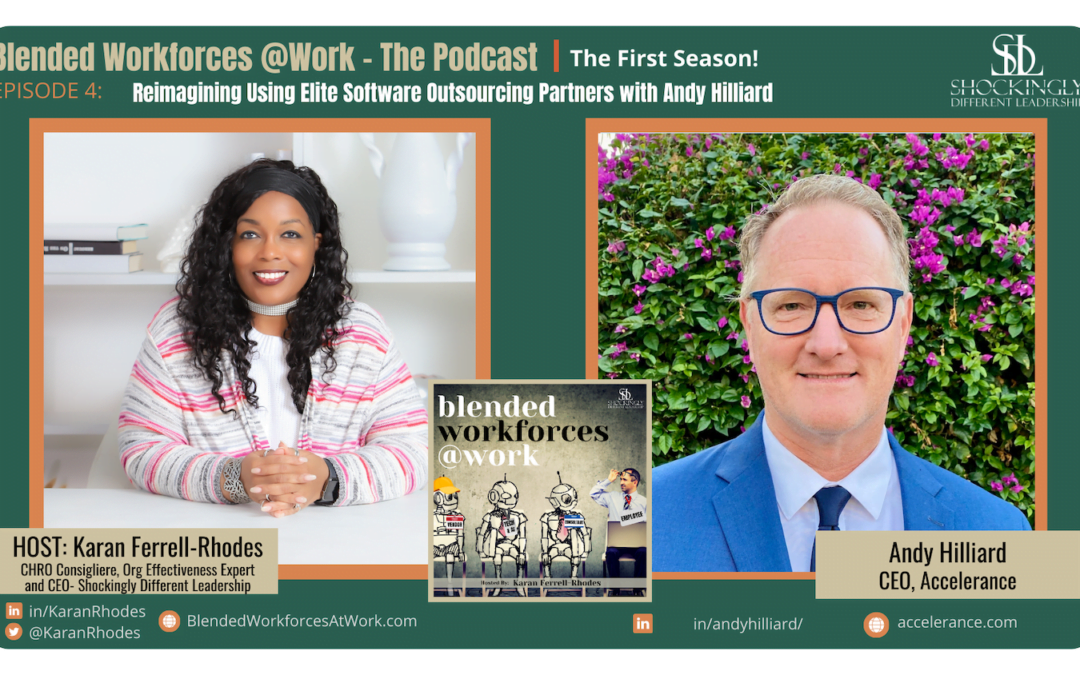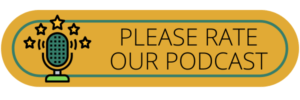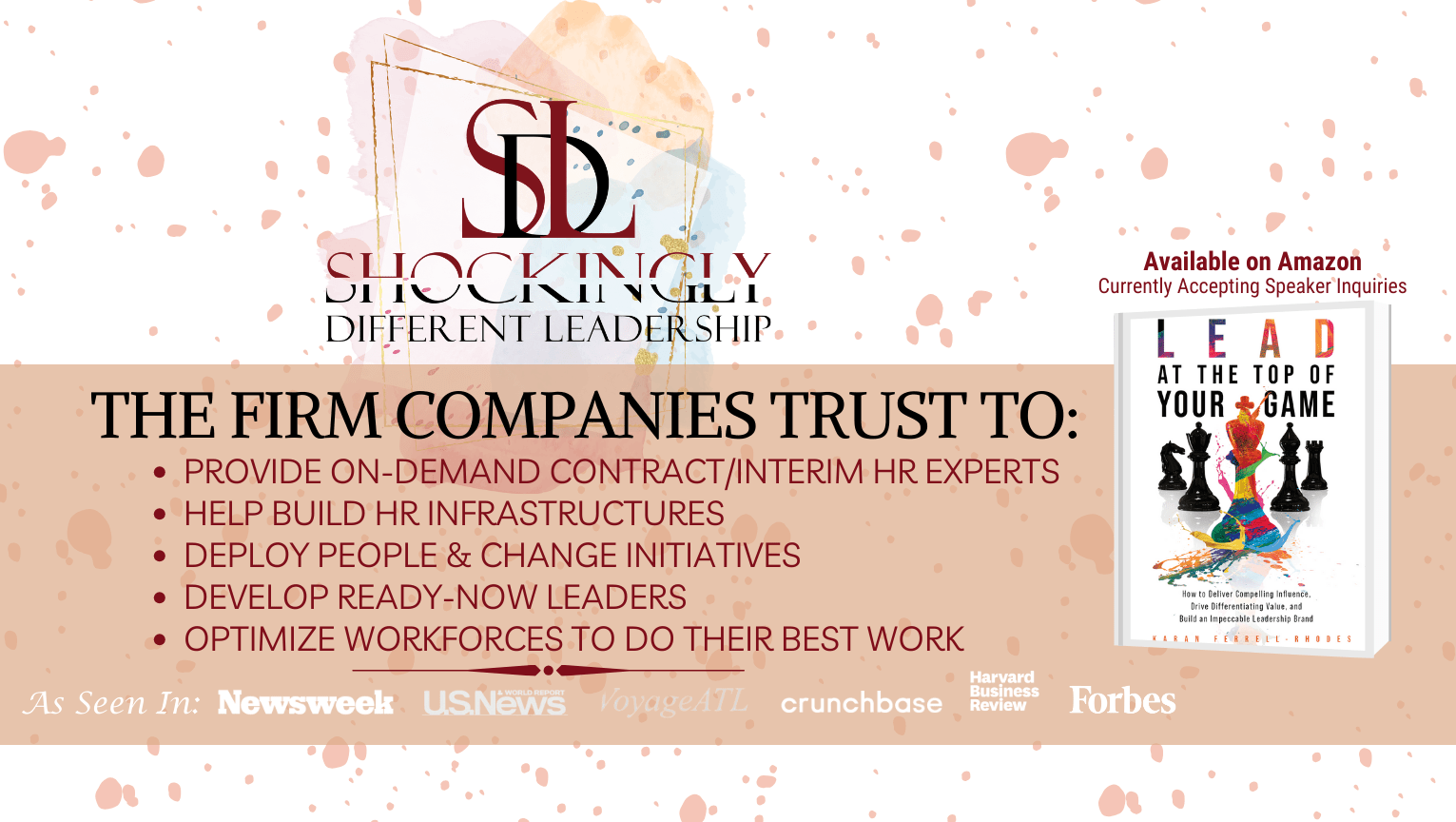Outsourcing talent from another country or another continent can be uncharted territory for many small & medium-sized businesses. However, outsourcing offshore talent can provide immense value for an organization.
Andy Hilliard is the Chief Executive Officer of Accelerance, a company that focuses on helping businesses find software development teams that are “large enough to scale and small enough to care.” Throughout the conversation, Andy shares his insights on the value of partnering with offshore service providers and how to find global talent & assemble a globally distributed
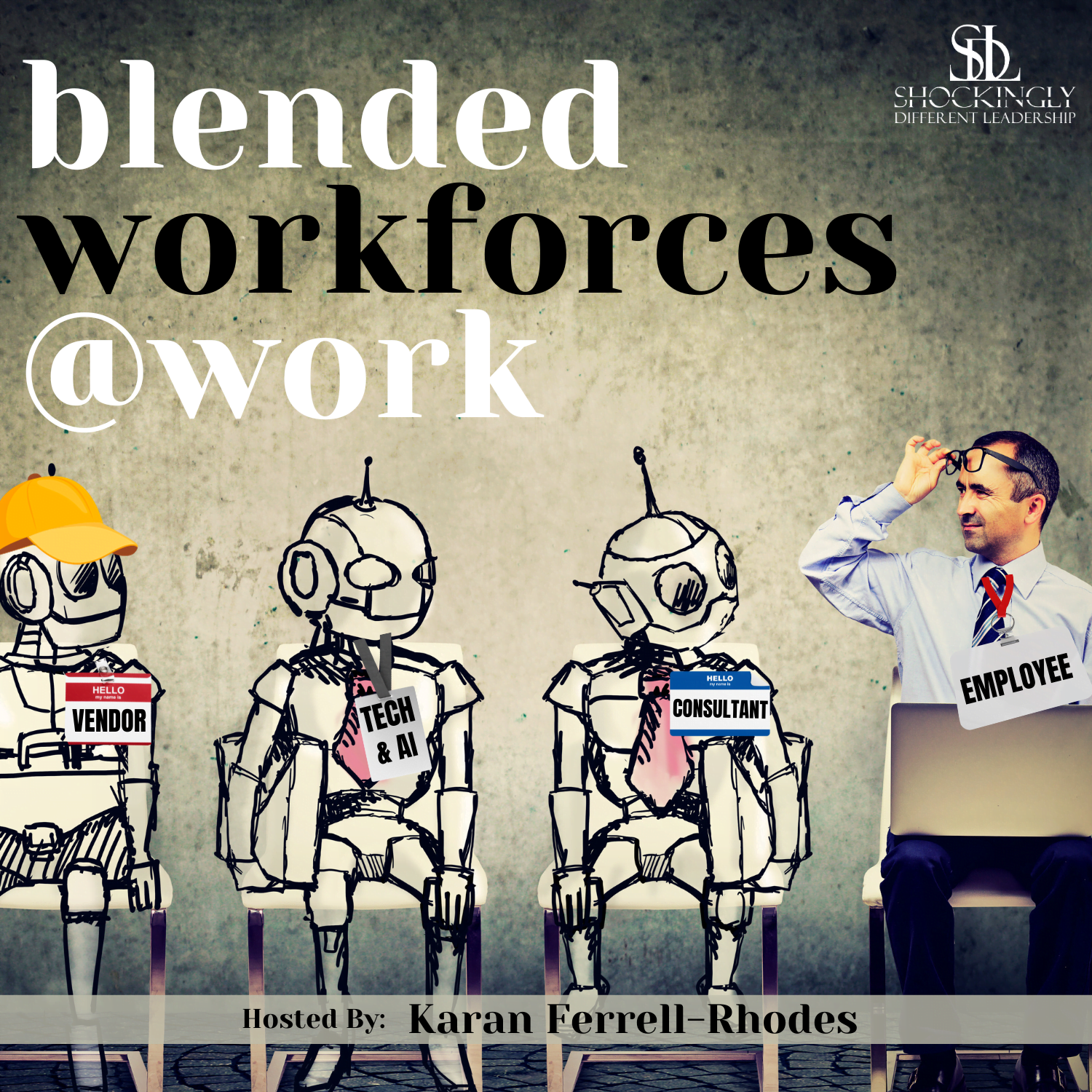
Posted by
SDL Media Team
Rather view our video podcast?

WHAT TO LISTEN FOR:
- How relatively small companies can benefit from outsourcing offshore talent.
- Pros & cons of offshore vs nearshore outsourcing.
- How to grow beyond the transactional approach when outsourcing talent.
- The importance of building credibility & legitimacy as an organization.
“How do you find those companies that are big enough to scale and small enough to care?”
FEATURED TIMESTAMPS:
[04:47] Andy’s career journey and how his company, Accelerance, helps companies find high-quality talent from across the globe.
[07:47] Matchmaking – The process of finding, assessing, and selecting the right partner for an organization.
[12:14] Offshore vs. Nearshore – The differences between the two types of outsourcing and how to decide which type fits your organization.
[15:17] Accelerance – Andy talks about the business model of his company and the value proposition for its customers.
[19:57] Avoiding Mistakes – Andy dives into some of the most prominent mistakes organizations make when outsourcing talent and how to avoid them.
[24:42] Impact of AI – How AI will change software development & how it’ll influence the way Andy’s firm evaluates their partners.
[24:22] Signature Segment: Andy’s LATTOYG Tactics of Choice: Leading with Intellectual Horsepower

An international business leader at heart, Andy champions the connection between talented software teams and companies seeking global expansion. He founded Isthmus Costa Rica, a pioneering nearshore software development company. Before that, he honed his global expertise as a division manager at Cognizant during their early growth.
Andy’s passion for international collaboration stems from his roots. Originally from Sonoma, CA, he has explored over 60 countries. This love for travel and cultural understanding was sparked by his Peace Corps service in Costa Rica during the late 1980s.
Andy’s academic background reflects his global focus. He earned an MBA in International Business, Finance, and Marketing from Northwestern’s Kellogg School of Management. Before that, he received a Bachelor’s degree in Business and Epistemology from the University of Denver, following his studies at Phillips Academy in Andover, MA.
LINKS FOR ANDY:
- Website: www.accelerance.com/andy-hilliard-author
- LinkedIn: linkedin.com/in/andyhilliard
ADDITIONAL RESOURCES FOR YOU:


Episode Sponsor
SDL is the go-to firm companies trust when needing to:
- supplement their in-house HR teams with contract or interim HR experts
- implement leadership development programs that demonstrate an immediate ROI and impact on the business

Episode 4 | Reimagining Using Elite Software Outsourcing Partners with Andy Hilliard
Andy Hilliard 00:01
But it’s all about taking the global supply of 30,000, breaking it down into you know, 1% of that is 300. But 300 is 299 Too many, it all gets down to what is that right partner that aligns on every important criteria, you know, that a client is looking for
Karan Rhodes 00:01
Blending workforces are one of the hottest talent strategies today, where employers are using a mix of traditional employees with external resources like independent contractors, coaches, consultants, vendors, and technology solutions, all in order to enhance competitiveness, ensure cost flexibility, and expedite business goals. But how are the successful companies infusing blended workforces into their business strategy? And what are the critical success factors and pitfalls to avoid during implementation? And on the flip side, what does it really take for suppliers to improve their chances of finding and landing contract opportunities? The devil is in the details, my friends! I’m your host, Karan Ferrell Rhodes, and it’s time to get smarter about Blended Workforces at Work! Hello, superstars Welcome to another episode of blended workforces that work. Podcasts are so happy to have you on today’s show. And we’re thrilled, absolutely thrilled to spotlight Andy Hilliard today. Andy is the CEO of Accelerance let me get that pronunciation correct, which is a firm that helps companies on the talent that they need to scale globally distributed software engineering and product development teams, as you know, with blended workforces, the areas of IT and software development were one of the first job professions that really adopted abundant workforces. And so I’m fascinated to hear from Andy just a second about you know, their work and how they are providing critical talent to today’s companies. But before we do that, I just wanted to note that Accelerance uses a proprietary matching program. That system I’m sorry, that Andy’s gonna tell us about. Then they connect clients to the top 1% of outsourcing partners worldwide, which is absolutely phenomenal. He’s also the author of the award winning book center needs Jia, a blueprint for building effective, globally distributed teams and the new era of software development. So welcome to the show, Andy. .
Andy Hilliard 02:15
Thanks, Karan. Thanks for having me on.
Karan Rhodes 02:17
Oh, we’re just absolutely thrilled. Well, before we dive deep into what accelerants does, and a lot of your book, for as much as you feel comfortable, we’d love for you to get into this just a sneak peek into your personal life or hobbies.
Andy Hilliard 02:33
Okay, well, personal life and hobbies, that’s a lot
Karan Rhodes 02:36
And or whatever you feel comfortable.
Andy Hilliard 02:38
So I live in Northern California around Sonoma, which you may know, Napa Valley Sonoma wine country has. I grew up here. But I left when I was 17, a long time ago and lived in various places around the country. And also a few years in Costa Rica as a Peace Corps volunteer, I raised a family of three young adults now, in Charlotte, I was in Charlotte for 23 years after graduate school in Chicago at Northwestern. And as you know, just to keep it short, as far as hobbies are concerned, you know, when I’m not working on the business and trying to grow the business, a lot of what my business does is travel the world and assess software development partners, to determine that 1%, you know, that there’s 30,000 development shops on the globe. And but there’s only one, you know, right scalable aligned partner, for any given client, the client has specific vision, and a culture and what they want to do their technology and on. And so luckily, my business allows me to help, you know, connect clients and these partners. And in order to do that, we need to have the, you know, have certified partners that are trustworthy and proven. So it takes me all over the world. I’ve been to 67 countries, I think. And so I mean, I guess it’s a good, good job, if you can get it.
Karan Rhodes 03:59
Can I just say, I’m so envious of you, because I love to travel globally, as well. But I’ve only hit 35 countries. So I am good slacking right now compared to you.
Andy Hilliard 04:12
If you had a business that paid for it, you could you could hit more countries, I’m sure.
Karan Rhodes 04:16
Yeah, I did. Actually, a lot of that was when I worked for Microsoft. I worked for them for almost 14 years. And and I was a global function over there, hypertension, leadership development. And so by doing that, I got to travel a lot. So probably half of those came out of that. I hear you. Well. Thanks so much for sharing that Andy. So let’s go ahead and dive in. And let’s start by having you share a bit more about the company Accelerance and what you and your team do and how you provide value.
Andy Hilliard 04:53
It’s important to set the stage here because I know a lot of your listeners are thinking well you’re a software engineering company. We’re not that we don’t have software engineers, we will help you find the right partner out of those 30,000 development shops, and the right partners for the right reasons, whether it’s, you know, you have a focus on geography or technical stack or, or maybe vertical expertise or application type, maybe have a certain, you know, scalable size you want to achieve, and therefore, a part of this too small or too big, might not be the right fit. Obviously, you have a certain amount of experience and preferences based on you know, a your own track record. And so what we want to do is, we want to make sure that the right partner that has been proven and certified by us, we’ve been working together for years, so we know, they perform exceedingly well for customers, but it’s all about taking the global supply of 30,000, breaking it down into you know, 1% of that is 300. But 300 is 299 Too many, it all gets down to what is that right partner that aligns on every important criteria, you know, that a client is looking for, but it doesn’t stop there. Because you know, whether you go out and find that right partner by yourself, you know, diamond in the rough win the lottery, whatever you want to call it, or whether you use us or some other platform to maybe, you know, in the end, you’re you’re having this relationship, or you’re gathering these people, maybe you’re hiring individuals, you know, one off, but that still only gets you to like this conceptual Sprint Zero, it only gets you the input, you need to have the engine, the ecosystem, the culture, the processes, the measurements, in order to take this found talent that you’re searching for the talent is more cost effective, and maybe hyper specialized to do something. And wow, you know, this is this is great talent, how do we turn that talent into value, you know, through product development, and software engineering, that’s the other thing. So we’re not a dev shop, we will help you find the dev shops, and all they focus on is getting the best talent and delivering services. But we will also consult with clients in order to help them turn that fuel that talent, that human resource fuel into productive, you know, working, highly effective culture environment, and ultimately, you know, value generating output.
Karan Rhodes 07:26
Oh, that’s amazing. That’s a fantastic business model. So you’re not only like, and I don’t mean to, like boil it down. But you’re a matchmaker to find the best partner talent for that company. And then you also stick around and just don’t leave them hanging high and dry, you stick around, they help them infuse it within their organizations and within the processes. Is that correct?
Andy Hilliard 07:54
Yea. That is correct, Karan, and over the last couple of years when I mentioned 30,000 development shops and these development shops, you know, hire engineers. But again, there’s 30,000 of them. And over the last couple of years that has grown from 10,000 to 30,000. What will how does it grown, you know, to fold in just the last couple of years. And the reason being is that in the old days, when you thought of a software development, offshore software development partner, you thought of a big building with multiple floors and a bunch of cubicles where everyone would commute in, and of course sit next to one another. Well, today’s different, you know, everything’s delivered remotely in an distributed fashion. So these, it’s much easier for a company to be created because you don’t need to have the physical infrastructure, and the leasehold improvements and the commute and all the friction of something that is a high capital expense. Now you can say, hey, we’re a software services company, we provide all the services and our people are distributed all over the place. You tell us what you need, and we will find the people and bring them together. So it’s much easier to just sort of set up a shop nowadays, which also makes it more hard to separate the legitimate the proven, you know, partners because anyone can say anything and anyone can use Chet GPT to to throw up a commercial you know, enterprise and just claim that they have 10,000 people you know, everyone has 10,000 Everyone has zero people it’s like the world is your oyster you know,
Karan Rhodes 09:28
Right!
Andy Hilliard 09:28
You can get people anywhere so, you know, to separate the the reality from from the fiction, the wheat from the chaff, whatever you want to call it. Well, it because we travel the world and we kick the tires and we we build relationships and we know what we’re looking for. I mean, I started my career at Cognizant back in the mid 90’s I mean, there were 700 of the top IIT graduates in India, and they spun out a Dun and Bradstreet to serve the marketplace and I I was like just a handful of North Americans. So I really understood, I mean, three years that I was there, they went from 700 to 25,000. Wow. And today, they’re 300,000. But you know, when they grew to a certain size, I thought, you know, they’re clearly going to be serving fortune 1000 companies, you know, they, in order to continue growing as a public company, they need to increase by 10s of 1000s every year. So they’re not going to do that by serving small cap and mid cap companies. So who is serving small
Karan Rhodes 10:29
is that what Accelerant serves? Is that who they serve?
Andy Hilliard 10:32
Yeah, we serve the 96% of the marketplace, who doesn’t have access to the essential features and the cognizance and the Infosys is of the world? Because there’s just there’s relatively small fish, you know, and these tier one service providers are serving, you know, the whales, the fish. And so, if most companies also want access to global talent, to great leadership, proven leadership, and how do they find those companies? How do they find those companies between, you know, 100, engineers and 1000 engineers that are, I like to say big enough to scale but small enough to care, you know, that have like Cognizant had before they became mega, large, you know, do they have thought leadership to to have business leadership? Did they have practice leadership? Are they really hiring the top talent in their marketplace? Are they really strong problem solvers? Are they good communicators? Do they build a relationship with us? That is more than transactional, but it’s holistic? I mean, and that’s where the 1% comes in. Because most companies don’t do that. They’re very transactional. You know, the, the clients are transactional
Karan Rhodes 11:41
They don’t have the time or bandwidth to do that, you know.
Andy Hilliard 11:44
Yeah. I know what I’m looking for. I mean, I left cognizant and started a, a Deaf shop in Costa Rica. So I moved my family to Costa Rica, founded a Deaf shop in Costa Rica ran that for about four and a half, five years grew from zero to 300 people and I modeled it after we’re a mini Cognizant are many essential, we’re many IBM, what does that mean? Well, because they’re not going to answer your calls. IBM isn’t, you know, you’re too small. You may need 510 50 100 engineers don’t even call the big tier one service providers. Who do you go to? Well, there’s 10,000 def shops out there. Well, I just need one who do I how do I choose them? How do I know which one’s legit? And so come to us, because, you know, I know what legit looks like, I know how legit acts? I know, you know, and but they’re hard to find. Because there’s just so much options out there.
Karan Rhodes 12:36
Now, you’re totally right. Can I circle back and ask you to because I know there’s a variety of people that listen to the podcast, can you share the difference between offshore and nearshore outsourcing?
Andy Hilliard 12:47
Sure. So the the evolution of offshoring was once in a more of a manufacturing production sense is that, you know, the the the cost of producing X, I always use wicker chairs for some reason, because I think it’s just a it’s a commoditized thing, whether it’s cars or rocket ships or whatever, you’re trying to find the lowest cost of goods and services in order to produce a high quality, low cost product to get to market faster. And that started off with like India and China because they have the highest quantity of labor, lowest cost of labor, access to natural resources. They were well educated, you know, population, you know, around engineering, and that could produce goods, right. And as the internet started to grab ahold the mid 90s, you know, and there’s such a massive, immediate high demand for digitalization of businesses, whether that’s how to communicate and process and transact digitally, how to run your systems internally, digitally, and how to create efficiencies, both external and internal to your organization. There’s just a massive demand for talent for software development, talent, and teams and processes, what what we call, you know, software development lifecycle, the SDLC you know, how our teams formed, how our teams run, what are the processes that are repeatable? How can we, you know, how can we certify and get certifications around ISO and agile development and all these buzzwords, right, but but it’s all about how products digital products, like physical products, in the old days, how digital products will be conceived, pass along to a well formed and functioning team and how that produces like high quality, fast, high quality product that can then be you know, put out to the marketplace. You get feedback. You improve on that and you have a competitive advantages because you’re faster to the marketplace, you’re producing high quality products at a lower average cost. Hopefully you have a good culture where there’s where there’s good continuity and low turnover. And that reflects well on your company, and also on just the speed of which you’re producing good products to the marketplace.
Karan Rhodes 15:11
Excellent. Thank you for that. It’s a lot clearer. Now, since you all don’t
Andy Hilliard 15:17
Oh, by the way, can I just remark on something? So your original question about offshore, so offshore was typically large countries, China, India, those around the world on the other side of the world, near shore is more like proximity, same timezone alignment, something where if you share, it could be east coast, and you share three, four hours with Europe. It could be America, where you’re sharing seven, eight hours with Latin America, that’s near shore.
Karan Rhodes 15:47
Thank you. Thank you for that. You mentioned that it celebrants you all don’t have your own, like engineers, per se, because you’re working with these partners? What is your business model? How do you all make money? Since? Is it just the making that connection? Or is it through the consulting or certifications or other ways?
Andy Hilliard 16:08
So you mentioned two ways. One is you remember, before I mentioned that, there’s the talent portion, or the fuel, the talent fuel, and you have the essentially the the function or the machine of which that fuel, the people will then organize and produce efficient products to you know, serve the marketplace. So we’re in money on the finding the right teams and talent for people. Because with, you know, garbage in garbage out. So it’s very important that you choose the right partnership, and typically company,
Karan Rhodes 16:47
And that’s why you invest so much in your taking this tires, if you will, going, making sure they’re legit.
Andy Hilliard 16:52
Yeah, I mean, we have literally 500 due diligence areas that we uncover, to make sure that everything is as it is marketed as it is sold as promised. And ultimately, you know, the, you have to build a relationship based on trust, and radical candor,
Karan Rhodes 17:11
Right.
Andy Hilliard 17:11
and commitment and accountability. So it can’t stop at the honeymoon or the wedding phase, it has to have enough gravitas and proven excellence to serve a customer in the most effective way possible. Every customer is different. Every partner is different. That’s why we have we literally have 300 partners of which 70 are sort of tier one 230 are sort of, you know, tier one, B, I guess they happen to be more niche II, but all of these partners have been proven over time to deliver a certain set of specific services that are very aligned and unique to whatever that customer happens to have. So for example, you know, if someone says, Oh, what do you focus on Andy, because we have 300 partners, if let’s say, a client comes to us and said, you know, had horrible experience outsourcing, outsourcing doesn’t work. You know, we’re in the entertainment business. And we need someone to help us build, you know, augmented reality applications, and they have to have the mobile application, they have to serve this public. And you know, I’ve just had horrible hypothetically experience outsourcing to, let’s say, Asia, and I don’t know much about Eastern Europe, but you know, I’m really intrigued about the same time zone collaboration with Latin America. Oh, and the size of your team. While you know, I think we want to start with five or 10. But it seemed like, you know, over time, I just want a borderless label this team have and maybe it’ll be 50%, domestic and 50%. Otherwise, and domestic, it could be all over the states or something. It doesn’t matter where they are, I just want them you know, one team, I’m like, so near shore, same time zone, a team of five to 50, augmented reality entertainment industry, I have, we have partners in Latin America that are certified that work with us in the entertainment industry, specifically in augmented augmented reality, this is what they focus on. They hire people specifically develop them, like, where did you find your everything is perfectly on? That’s what we do. I mean,
Karan Rhodes 19:20
That’s wonderful! I’d be sold. Get me to the…
Andy Hilliard 19:24
I mean, it starts with the right match. And it starts with a verified right match. Because if you were to go out and ask 10 general service companies, what do you focus on? They’re like, Well, what do you want us to focus on? Anything you want? And so it’s not about the promise, it’s about the verification of all of these important aspects that a client deems valuable to them culture or location or tech or appetite, you know, whatever that is, and you have waiting it’s like, Well, I’m really focused on the technology. And you know, I’m if you know, gr, or feel more flexible, and finding that right match. Now the right match, again, just gets you to the starting gate, right? Because there’s many, you know, great partners and and poor clients that don’t really have a philosophy, a cultural set of values that they deem they want to have an arm’s length relationship so that they can blame somebody or that, you know, they really just want to throw it over the wall and just get stuff back. And that’s really not where we play, we help companies sort of break down those barriers and create this mentality that your people are everywhere. They’re contractors, they’re full time. They’re here, they’re there, you know.
Karan Rhodes 20:41
So what do you think are one of the big mistakes that your clients make going into when they first contact you? Is there are there misconceptions that they have? Or expectations that are too high or too low? Can you share a couple of those that you see?
Andy Hilliard 21:01
Yeah, definitely. I mean, it happens every day. And that is, they think their end in mind is finding cheaper talent, which they will they will find less expensive talent because supply and demand. Guess what, Karen, only 13% of the software developers in this world are in the United States. 87% are not? Why would you ignore that talent? A talent is lower costs, they’re more hyper specialized. And I’m not saying everything should be in that, you know, offshore pool, but it is a pool that can be blended together. And if you treat it right, you know, it, you know, essentially is like you and I, you know, I’m in California and Atlanta, and we’re working together, so it doesn’t really matter. So the first thing is, is that they think just finding the quote unquote, talent is is the end goal. And it’s just the beginning of the journey, as I said before, the other thing is, is this binary transactional us versus them mentality in litigious, I’ll throw that in there, too. Americans especially, are very transactional. So I got, I want to build a wicker chair, and I’m going to send my requirements to China. And if I don’t like what they get, I’m going to send it back until, again, if in the end, you know, yeah, I will sue them if you know, I don’t get the quality and the speed that I want at the cost that I want. I want to I don’t want you know, Americans are very demanding. But software is an art. It’s a team sport. And people need to sort of erase those that binary transactional approach to outsourcing and really embrace a, what we call one shore, which is basically offshore nearshore it’s all one shore. That’s where the actual the name synergy, a part of the it’s a combination of synergy and Pangea. Pangea was the period and world where there was only one continent before all the continents broke off, you know, depending on your theology or whatever. But the reality was all the continents were, you know, essentially one, yes, there were no human beings. But imagine like, you know, John Lennon uses saying, imagine, you know, no borders, and imagine we’re all one. So it’s a little bit cool. It sounds a little bit Kumbaya, I mean, it comes in everything that I stand for today came my years of the Peace Corps. And the Peace Corps is about building trust, building familiarity, appreciation of different cultures, commitment and accountability. And, you know, treating people as equals empowering people being a servant leader to one another, so that they can serve you better. That’s the whole and that does sound a little Kumbaya, but honestly, that is the missing secret sauce of building effective software with teams that are globally distributed. And by globally. I don’t mean outside the US, I mean, Metro Atlanta, Charlotte, California, Denver, Mexico, Vietnam, you know, Ukraine, wherever, names, you know, those are names and labels with borders that you know, politicians have have set in order to, you know, maintain control and, and a certain identity, I guess, but you know, in the world software engineering, there’s great talent everywhere, and we should just eliminate all those artificial constructs.
Karan Rhodes 24:27
I love that. You’re so absolutely right, and is a fellow world traveler. I always say that we’re more alike than difference and you find talent in every nip and tuck of the globe. So I totally understand some Kumbaya and with these parents.
Andy Hilliard 24:45
In this world that we live in, you know, we all hate change. Change is hard. But change is inevitable. And if you don’t change the world’s going to change without you and it’s going to leave you behind, and also in a chaotic world and chaotic adulthood. We seek comfort and comfort is is us versus them, it’s retracting back into your own bubble, and rejecting other bubbles and rejecting other people. And as comfortable as that may seem, it’s not competitive. It’s not viable in a competitive marketplace. It’s not conducive to producing great software, when you have 87% of the of the talent outside of the US, you got to fight it, you know, and you got to stay on comfortable. And you got to take a different mentality to things because if you just retreat, you’re going to be slower to market higher cost, not the quality is isn’t going to be as good. And you’re going to lose out on all the benefits that your competitors are just beating you soundly on a daily basis.
Karan Rhodes 25:47
So it’s so funny, Andy, I’m looking down on my sheet. And I think I’ve gotten to to the 25 questions I wanna ask you, but, I would be remiss if I didn’t at least let you highlight in this episode. Before we move in, I want you to give us an overview of your book in just a second. But what are your thoughts on AI right now? That’s so hot right. Right now, and I know there’s concerns about it eliminating roles, and you know, including software development, how’s that going to impact the partners? or what have you? What are your thoughts about AI in the marketplace that you play in?
Andy Hilliard 26:21
Well, it will eliminate roles that are those roles, that there the entire role is comprised of low level repetitive tasks. I mean, it’s inevitable. Same with the industrial age 120 years ago, that, you know, transformed the world. And this is going to transform the world to it’s going to eliminate a lot of tasks, it’s going to automate a lot of tests is going to multiply the we’re already seeing companies where the engineers, their output of quality code to build digital products has multifold it, you know, 510 x, because augmented reality is, you know, automates things, it’s a co pilot, it’s, there’s certain things that I don’t want to say we’ll never do. But if it actually gets to that point, you know, then we have to worry about our very survival, because the machines will take over Terminator stuff, right? But as a co pilot, it makes people more efficient. It doesn’t make ethical or moral decisions. It can’t, it can’t apply sort of situational, humanistic decision making. It can, you know, it’s machine learning, it is learning patterns from from the information that it gathers. So it can take data can take patterns, it can make them better faster, but it can’t make sort of holistic, intuitive, moralistic decisions for people so
Karan Rhodes 27:55
Now, will it change how you evaluate your partners?
Andy Hilliard 27:59
Oh, Absolutely. Because we want customers to be taking advantage of partners, we’re going to be looking strongly at how our partners are integrating AI into the the process velocity, how developers use AI, what tools are they using? How are they using it to cope to copilot and increase the velocity and the quality of what they do? You know, in the old days, because so many lines of code are being written by so many engineers, you know, it, a lot of companies were left with, well, the software functions, but it’s kind of janky the wiring is all weird and spaghetti code, they used to call it a PDF with all this legacy code that you have to completely throw away or because it was put together with, you know, baling wire and duct tape. And somehow it worked. Yeah, and I was happy that it worked. But then, you know, when the partner left, or when they found out that it just wasn’t flexible, and it just broke down all the time, then you’re like, you know, so I don’t know if How are humans going to evolve, so that the velocity of products and enhancements and upgrades is something that can be handled by humans? I know like even at my age, no less my mom, I mean, she can only handle a couple of things, you know, and things coming out. So fast, but
Karan Rhodes 29:20
But we will evolve. I think we will in some kind of way may not be me personally on my generation, but we’re very adaptable. And I think life will, you know, we’ll find a way to evolve to coexist, because we’re have to because it’s going to be there. Yeah. So really quickly. You know, one of the things we’d love to highlight or or ask our guests is, which of the tactics that I read about in my leadership book kind of resonated with them and you were so kind enough to share that leading with intellectual horsepower, really resonated and for my new listeners, leading with intellectual horsepower is all about using your areas of expertise to come like peeking around corners and spot trends and connect dots and find new areas of opportunity. And having this had this conversation with the Andy, it’s pretty clear while that one might have resonated a bit, but I want to give you some airtime to say, what you think leading with intellectual horsepower is very important, today’s world.
Andy Hilliard 30:21
So, over the last couple of years, our traditional business was more about helping clients find the right partner. Because maybe at the time, there were like, 10,000 partners and like, how do I find them? Well, there’s this accelerants company, and wow, they really traveled the world, they have a great methodology. But But like with any large market, technology is going to try to solve the problem. So all these Startup Platforms seeing started coming into existence and directories, and like, oh, we solve your problem, you can use a platform and you can go Filter, like you’re buying a dress, or a you know, pair of slacks, you can find a partner, and a directory, and I can find this, I can do it myself. And then you know, AI started, you know, really taking off and there’s one from 10,000 to 30,000. And then there’s more smoke and mirrors being presented, because people can pretend that there anything and, and the entire industry really started to become oversaturated and commoditize, everyone was the same everyone was producing the same content, using the same buddy buzzwords trying to game, Google and SEO. And the effect was that you had more poor supply, and worse experiences, overall, people felt they were empowered, but they were empowered to basically get into a messier situation, because it was just that, you know, they couldn’t find they didn’t have the right engine, and they couldn’t find the right people, even though they have the tools, or they were told they had the tools. So they’re given power to just you know, cause their own pain. So as far as the intellectual horsepower is concerned, you know, he’s really need to focus on credibility, legitimacy. And obviously, this comes at a cost. You know, like, for example, my company, like, we’re really doubling down on bringing in thought leaders, whether internally or externally, contractors or consultants to align with us, that are long term practitioners and thought leaders that can take whatever situation that client is in and give them a tangible roadmap and tangible relationships that they can rely on that are trust based. You know, when I talk about trust, and radical candor, and commitment, and accountability, these are tangible things that AI can’t replicate or fake, you know, AI so much fake it till you make it sort of thing. Yeah. So, you know, I would be, you know, for anyone I would be thinking is like, how do I combat the onslaught of competitive smoke and mirrors? And how do I emerge as being more legitimate, more credible, more real, more authentic, more trustworthy, because everything starts with trust. And you can’t do that just by, you know, doing the same as everyone else on the planet, which is letting ai do their work for them, you know, people are becoming the tricky transition is people think that AI can maybe give them a pathway to laziness. It’s like, you know, if I can just do my job. And work harder to understand how, how AI is going to enhance your trustworthiness, and answer your authenticity.
Karan Rhodes 33:44
You’re so right. Well, Andy, I’m so sorry. This is all the time we have for today. I knew when we started, I could talk for hours with you. But I want to get let you have voice and to where folks can find more about accelerant and your book.
Andy Hilliard 33:59
Sure. Well, you could reach me at andy@accelerants.com. And it’s accelerants.com is the website. The book, as you said, Karen is a Synergea. You could find that on basically any book platform. I think actually were the the Kindle digital versions only 2.99 and the hardback is 20.99. And yeah, so if you’re looking to build a culture of software and product development, that is, you know, borderless that is a combination of just the right people with the right hyper specialization in the right seats, within the right culture, and within the right sort of a framework and function. That is you working holistically and smartly together. It’s more than just talent. It’s more than just finding people with a resume that says they do something x, you know, it’s really I mean, they’re it’s an ecosystem that you know, We can help you with, you know, I’m very, very holistic in our approach to these things. And, you know, I think we we serve the small and mid cap companies, you know, the companies that want to compete on the global stage want to have the best best practices at play to take advantage of this, this talent filled world?
Karan Rhodes 35:18
Well, I personally as an organizational strategies, I personally thank you all for the work you’re doing because so many times I see companies working with, you know, those on the external side of the blended workforces world. And they just want to person in the seat, and they don’t do the extra guilt to go the extra mile to really infuse them into their culture and make sure that things have all T’s across i’s are dotted and things are clicking. So thank you so much for your time today. It’s been such a great conversation. Thanks,
Andy Hilliard 35:54
Ken. I really appreciate you inviting me on. Oh, absolutely.
Karan Rhodes 35:57
And thank you to listeners for listening in to another episode of the blended workforces at work podcast. We really appreciate your time because you know, you could have spent it other ways. Please be sure to like and subscribe to the podcast and share it with just one friend so that we can expand our reach and get smarter about blended workforces at work. Thanks so much and see you next week. Well, that’s our show for today. Thank you again for listening to the Blended Workforces at Work podcast. You can check out the show notes, additional episodes, bonus resources, and also submit guest recommendations on our website at blendedworkforces@work.com. You can also follow me on Twitter, LinkedIn, Instagram or YouTube by searching for the name Karan Rhodes with Karan being spelled K a r a n. And if you like the show, the greatest gift you can give would be to subscribe and leave a rating on your favorite podcast platform of choice. This podcast has been a production of Shockingly Different Leadership, a global consultancy which helps organizations execute their people, talent development, and organizational effectiveness initiatives on an on-demand, contract, fractional, or project basis. Huge thanks to the SDL production and editing team for a job well done. Bye for now.

Want to be a Podcast Guest?
Check out our guest qualifications and submit our brief form to be considered.
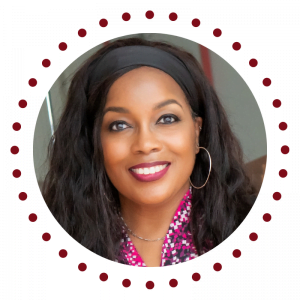
Want Karan to be Your Podcast Guest?
- Blended Workforces & the Gig Economy
- Critical Execution Tactics of High-performing Leaders
- Entrepreneurism & Leading Your Business

Want to be a Podcast Sponsor?
All sponsorships come with a featured spot on show notes pages.
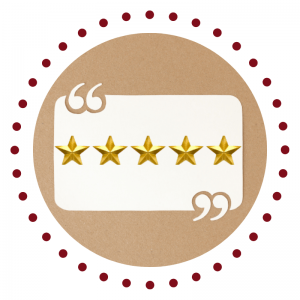
Like the Show? Please Leave a Review
If you like the show, it would mean the world to her if you left a quick review.
Your word is golden, so a HUGE thank you in advance!

#KeepInTouch
via our podcast alerts
Subscribe now to discover why thousands of monthly listeners who are passionate about doing their best work prioritize time each week to listen to the Blended Workforces @Work podcast.
#AboutSDL
#WhereToFindUs
MAILING
4480-H South Cobb Drive
PMB 219
Smyrna, GA 30080
PHYSICAL
2121 NewMarket Parkway
Ste. 108
Marietta, GA 30067
#ContactOptions
Customer Service Email:
service@shockinglydifferent.com
Call or Text:
770-384-1103
#Office Hours
MON-FRI
8:30 AM – 6:30 PM
Weekends By Appointment

